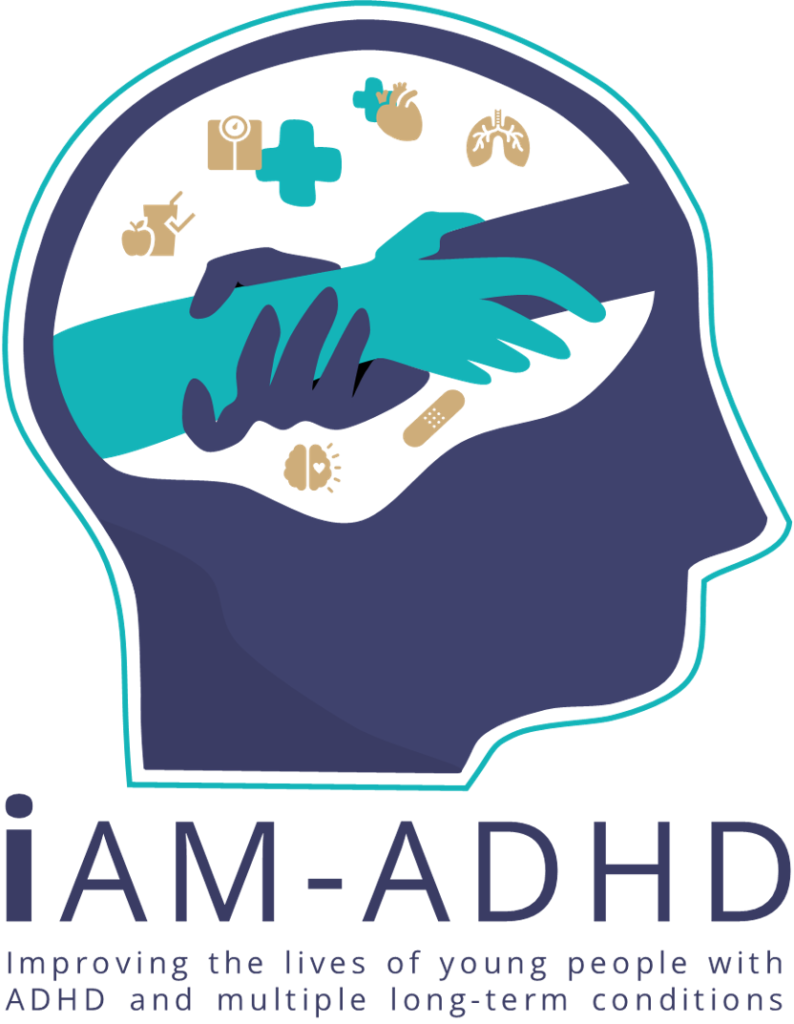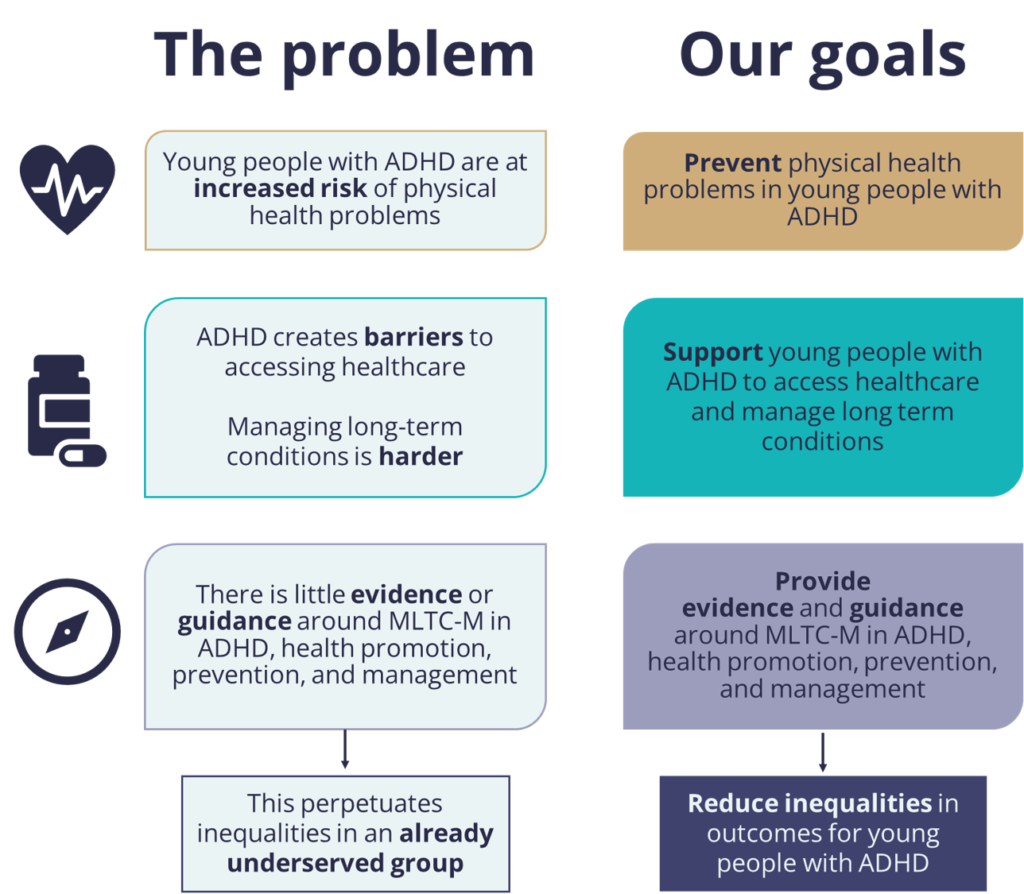iAM-ADHD
Improving the lives of young people with ADHD and multiple long-term conditions
iAM-ADHD
Improving the lives of young people with ADHD and multiple long-term conditions
iAM-ADHD is an NIHR-funded Team Science project addressing the prevention, health promotion and management of health risks and multiple long-term conditions (MLTC) for young people with ADHD
Young people with ADHD are at increased risk of physical and mental health problems.
ADHD creates barriers to accessing healthcare and thus makes managing long-term conditions more difficult.
There is little evidence or guidance around MLTC in ADHD, health promotion, prevention, and management. This perpetuates inequalities in an already underserved group.
The iAM-ADHD team have lived experience and research knowledge in areas around ADHD and MLTCs. This is why we want to build a programme of research to support young people with ADHD with the prevention and management of health-risks and MLTC-M.

Develop ourselves as a team that leads impactful, interdisciplinary and inclusive science in the field of MLTC-M and ADHD.
Lay the foundations for future grant applications to develop and evaluate strategies to address the challenges of MLTC-M in ADHD.

Our idea to support young people with ADHD with the prevention and management of health risks and MLTCs came from discussions with people with lived experience who were involved in our previous ADHD research, which looked at perceptions about health and care in ADHD (click to see more information about the MAP study). During this conversation, we realised that there is relatively little research in this area. A scoping review by members of our team also found a lack of evidence-based psychosocial interventions for physical health in people with ADHD, or consensus on what good health looks like in ADHD.

From that conversation, we gathered a team of researchers with relevant expertise from different disciplines and people with lived experience to apply for an NIHR funding award called Team Science. The Team Science award is designed to:
Our application was successful and has enabled us to form an interdisciplinary team and build research capacity in this crucial area of need.
Our plan involves opportunities to work together as a new team to establish joint values and ways of working. Our team involves people with lived experience of ADHD to ensure that their views are represented from the very beginning. We will: